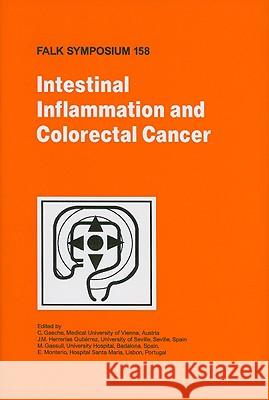Intestinal Inflammation and Colorectal Cancer » książka
Intestinal Inflammation and Colorectal Cancer
ISBN-13: 9781402068256 / Angielski / Twarda / 2007 / 320 str.
This book is the proceedings of the Falk Symposium 158, on 'Intestinal Inflammation and Colorectal Cancer', held in Seville, Spain, on 23--24 March 2007. The past 15 years have brought significant progress in the molecular understanding of colon carcinogenesis and tumour progression. This knowledge originated primarily from familial cancer syndromes, extended to sporadic tumours and fuelled the development of target-specific drugs. In contrast, the functional relationship between inflammation and the origin of cancer is not new. The German pathologist Rudolf L.K. Virchow had hypothesized this some time ago ('Die krankhaften Geschwuelste',1863--7). Highlighted by over 400 scientific reports, the role model of inflammation-driven carcinogenesis is colorectal cancer in ulcerative colitis. Today, this relationship between chronic inflammation and carcinogenesis is well established by epidemiological data and has become widely accepted. In addition, we have just started to learn how cancer may create an inflammation-like environment that augments disease progression and metastasis. This book covers the current understanding of inflammation-driven colon carcinogenesis, highlights the most relevant mechanisms and discusses measures to interfere with this process. It is a true translational topic which will attract both basic scientists and clinicians, specifically those who can make a difference in preventing this type of cancer.











